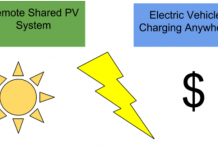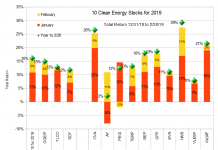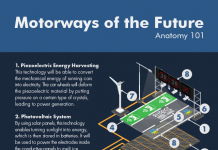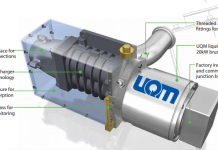Tom Konrad CFA
Many investors find the prospect of selecting individual stocks simply too daunting. For those investors interested in investing in peak oil, but uncomfortable with the risks and moral dilemmas inherent in oil company stocks, there is another option: Powershares Global Progressive Transportation Portfolio (PTRP).
I’ve been researching and writing this series about investments that will benefit from peak oil for half a year. If you’ve read the 20+ articles in the series so far, you’ve learned about several stocks that should be well positioned to benefit from rising oil prices, and you should also have a good idea about which sectors are best to avoid.
On the other hand, if you are just coming across my writing now, you’re about to learn about a single investment that should not only benefit from peak oil, but it will give you diversification at a fairly moderate cost.
The Powershares Global Progressive Transportation Portfolio (PTRP) is an Exchange Traded Fund (ETF) that invests in companies that “the Index provider believes stand to benefit substantially from a societal transition toward using cleaner, less costly and more efficient means of transportation. These companies focus on technologies for utilization of greener, more-efficient sources of energy for transportation. These technologies are designed to improve energy efficiency and reduce the costs for fuel or time in transit and include renewable energy harvesting or production, energy conversion, energy storage, improvements in energy efficiency, power delivery, energy conservation and monitoring of energy information.” In short, the ETF is a collection of many of the same stocks I’ve been writing about in this series.
Why Use an ETF?
There are several benefits to using an ETF. One of the most commonly cited is diversification: a single investment gives you a small slice of forty different companies. My reading leads me to believe that this is more diversification than you are likely to need, given the fact that the ETF itself will only be a fraction of your portfolio. (I discuss optimal diversification in detail here.)
I was recently speaking to an investment advisor who made the case for diversification this way: if any individual stock is only 1% of your portfolio, if one of them fails, you will only lose 1% of your portfolio value. What he was not thinking about was the fact that, the more companies you own, the more likely you are to own a company that goes bust. For instance, even many “socially responsible” mutual funds had relatively large stakes in BP. Second, with today’s low brokerage commissions, most investors will pay more to own even relatively low-cost ETFs than they will to own stocks. If a fund’s expense ratio is the price you pay to avoid large blow ups, PTRP’s 0.75% annual expense ratio, is the same as having one out of 133 stocks in your portfolio guaranteed to fail every year, in addition to any real company failures.
On the plus side, global exchange traded funds like the Powershares Global Progressive Transport Portfolio allow access to foreign-listed companies that many investors might find difficult or expensive to buy. My analysis of PTRP’s holdings found that over 60% of the fund’s portfolio does not trade on US markets.
Sector Allocation
Another aspect of an ETF like PTRP is that its holdings are based on an equal-weighted global index of stocks. That means that if there are not very many publicly traded stocks in a specific sector, the index will give a low weight to the sector, and if there are a great number of publicly traded stocks, the exposure to the sector will be high. I prefer to weight sectors that have a low degree of investor interest much more heavily than those that have drawn a lot of investor attention. As I’ve discussed in this series, my favorite progressive transportation stock are alternative forms of transportation such as bike stocks, mass transit stocks (especially bus stocks such as New Flyer Industries (NFI-UN.TO), a long-time favorite), in addition to IT-based Smart Transportation.
Below is the sector breakdown of the holdings of PTRP from early August. For companies such as FirstGroup PLC (FGP.L) which have both rail and bus operations, I split the fund’s stock holdings between the relevant sectors.

For my own portfolio, I would like to see a much higher allocation to buses, a higher allocation to bikes and mopeds, and a lower allocation to natural gas vehicles. The sizable allocations to “Other Alt-energy” and “Non-green” are the inevitable result of the fact that many companies have operations both inside and outside the transportation sector.
Stock Discoveries
Despite my quibbles about PTRP’s sector allocation, combing through its portfolio holdings is almost always a useful exercise. In this case, I found another bicycle stock that I had missed in my previous list of bike stocks, Merida Industry Co (9914.TW), a Taiwanese bicycle maker, as well as London-listed bus manufacturer Stagecoach Group (SGC.L), both of which I’ve added to my list of companies I plan to research further, given that they are in my favorite progressive transport sectors.
Conclusion
While not without its faults, The Powershares Progressive Transport Portfolio (PTRP) is a good option for investors looking for a one-stop shop of non-oil related stocks that are better prepared to cope with rising oil prices than the vast majority of the companies that comprise our transportation system. If you want to invest in the se
ctor, but you do not have much time to devote to stock picking and the complications of purchasing foreign-listed stocks, PTRP is a good choice for you.
DISCLOSURE: Long New Flyer Industries
DISCLAIMER: The information and trades provided here are for informational purposes only and are not a solicitation to buy or sell any of these securities. Investing involves substantial risk and you should evaluate your own risk levels before you make any investment. Past results are not an indication of future performance. Please take the time to read the full disclaimer here.









I am not sure why the emphasis on bikes. I live in Budapest and I bike everywhere, but effective public transport requires greater speed than a bike can provide. I suggest trams and undergroundssystems as well as trains and water transport will be core of any post peak oil transportation system.
Bikes are part of a multi-modal solution. Public transit is good for moving people long distances, but bad for the “last mile.” Bikes are good for that.
In other words, I think we should be looking at trains, trams, water, and bikes, all of which I lump under “alternative transport.”